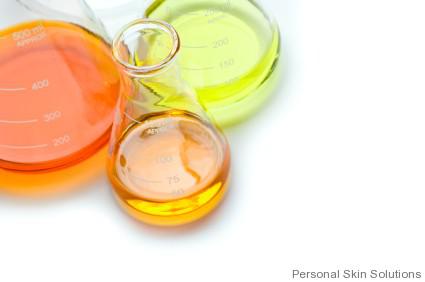
When I was first experimenting with skin care products, I believed (with all my heart) that if a product stung when I put it on my face, then it must have been working. In the absence of any stinging, I would go out of my way to find a product, or technique, that would cause the telltale tingling of skincare success. It was not just the crazy idea of a 13-year-old wielding a cotton ball and isopropyl alcohol; it was a belief system that an entire industry dictated to its market, and their willingness to pay big money for solutions they could “feel.”
Alcohols in your skin care products
Eventually, science won over ignorance, and we now know that alcohol as a skin care ingredient has long been misunderstood. The reason for the confusion is in an inaccurate understanding of just what an alcohol is.
From a chemist standpoint what classifies an ingredient as an alcohol, is anything that has a hydroxyl group on it. Some common skincare ingredients that have hydroxyl groups on them include Cetearyl alcohol, which is used as an emulsifier, and Tocopherol, which is more commonly known as vitamin E. Both of these are considered “fatty-alcohols,” and are good for your skin. Neither one of these ingredients share the same topical characteristics as isopropyl alcohol, or acetone. Whereas SD (denatured) alcohols are drying, and strip the skin of its natural lipids (or protective fats), these other alcohols contribute greatly to the health of your skin. So let’s separate the beneficial alcohol-based skincare ingredients from the damaging.
“Good for your skin” Alcohols
Cetyl alcohol: A lubricant and stabilizer. It helps to lock in moisture and form a protective layer.
Cetearyl Alcohol: An emulsifier and stabilizing agent. It is derived from coconut oil, and can soften thicker products.
Stearyl Alcohol: Emulsifier. Can substitute for cetyl alcohol when a firmer formula is needed.
Tocopherol: Antioxidant. Also known as Vitamin E. This oily substance does not resemble, or act like any alcohol as we’ve known them.
Now I know you want to get to the “bad for your skin” list, but first…
…. a little cosmetic alcohol history
Historically, SD alcohols were used in skin care products because they were a cheap and light solvent. In toners (astringents) they were used to break the surface tension of the petrolatum used in cold creams, so that you could remove the cold cream without leaving a greasy after-feel. Everyone thought these products were working to clean the skin because it could be “felt”, and because when you looked at the cloth/cotton that was used to apply the toner/astringent, it was darkened with all the “dirt” and “grime” left on your skin. In reality, what made the cotton dark was the removal of your natural lipids, your barrier layer that needs to be on the surface of your skin to protect your health.
The knowledge behind the science of skin care has evolved dramatically since I was a teenager. Now, as consumers, we understand that it is important to keep that barrier layer intact. To do so, the following alcohols should not be a part of the ingredient profile in your skin care products.
Stay away from the following alcohols
- SD Alcohol
- Ethanol
- Methanol
- Benzyl Alcohol
- Isopropyl Alcohol
- Acetone
- Methyl Alcohol
These alcohols are drying. They can strip the surface of your skin of your natural barrier layer, and dehydrate the skin cells below. This is why several “toners” designed to make you skin less oily seem to work (for the first few weeks). Inevitably, the oils come back because oily skin is not a function of hydration. Finally, these alcohols are irritants and cause inflammation which create a vicious circle of skin damage.
Myth Busting
What we know is that the term Alcohol is a scientific term, which includes many different types of ingredients. Some alcohols, like fatty alcohols are considered beneficial for the skin, and can be used in skin care products with confidence. Other pure-forms of alcohol are too drying, or may even strip the skin–these you wouldn’t want on your skin.
So, the “Never use alcohol on your face” myth is BUSTED. Oh yeah, one more myth to bust…you doesn’t need to “feel” a skin care product for it to be working. In fact, you rarely want to “feel” your skin care products at all.

